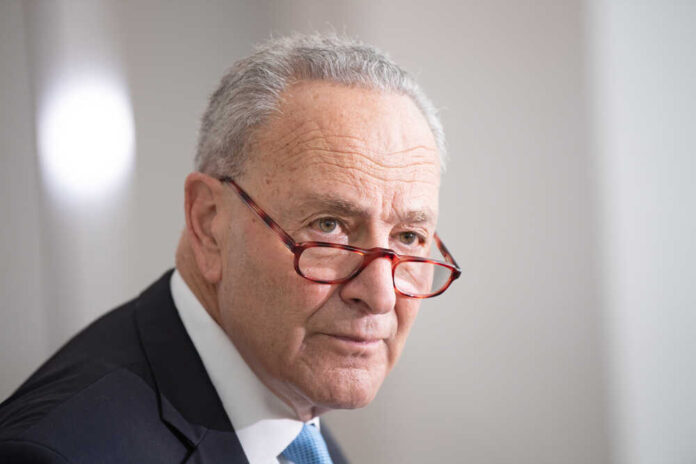
The Senate overwhelmingly approved an appropriations package last Friday, averting a partial government shutdown, Reuters reported.
The spending package, which passed the House 339-85 on Wednesday, March 6, extends funding for several federal agencies until the end of the current fiscal year on September 30.
The $467.5 billion appropriations package will fund the US Departments of Agriculture, Energy, Interior, Housing and Urban Development, Transportation, Justice, and Veterans Affairs.
The package passed the Senate in a 75 to 22 vote and was sent to the White House for President Biden’s signature.
Senate Majority Leader Chuck Schumer celebrated the vote, saying that the bipartisan appropriations package was proof that a divided government could get something done.
President Biden signed the spending bills on Saturday.
Congress passed a short-term spending package in late February that was signed by President Biden on March 1 averting a government shutdown until March 8 for part of the government and March 22 for the rest.
Lawmakers must still work out a deal on a second round of appropriations bills to fund the rest of the federal government before the March 22 deadline.
Still outstanding are appropriations bills to fund the Department of Homeland Security, the Defense Department, Health and Human Services, and other federal agencies.
The two appropriations packages are expected to cost $1.66 trillion. Conservative lawmakers had tried to push for deeper spending cuts in the final appropriations bills to try to put a dent in the country’s $34.5 trillion debt.
The appropriations bills should have been enacted at the start of FY2024 on October 1 of last year. However, Congress has rarely met the deadline for appropriations and this year’s debate over spending was more chaotic than most, with Congress passing four short-term stop-gap measures since the start of the fiscal year to keep the government open.
Some conservative lawmakers opposed the spending package passed last week, noting the more than $241 million in earmarks, including one earmark requested by the late Democrat Senator Dianne Feinstein.













